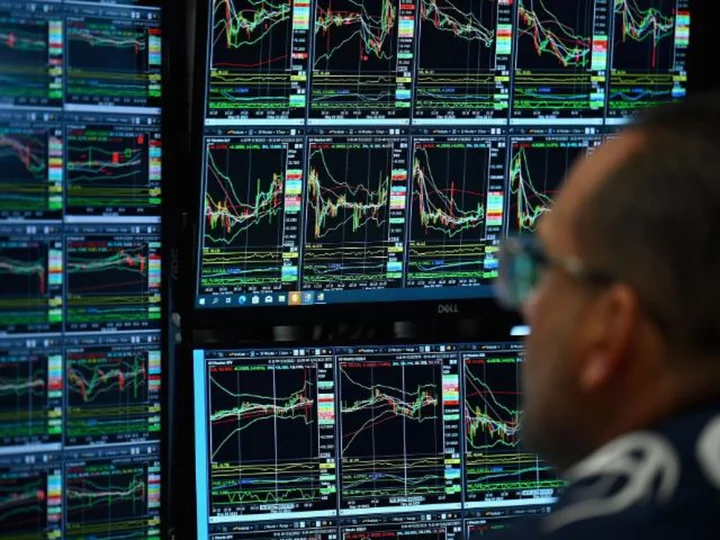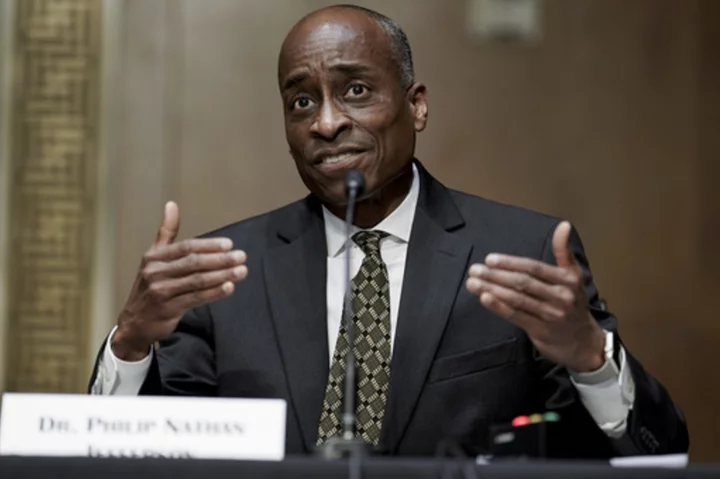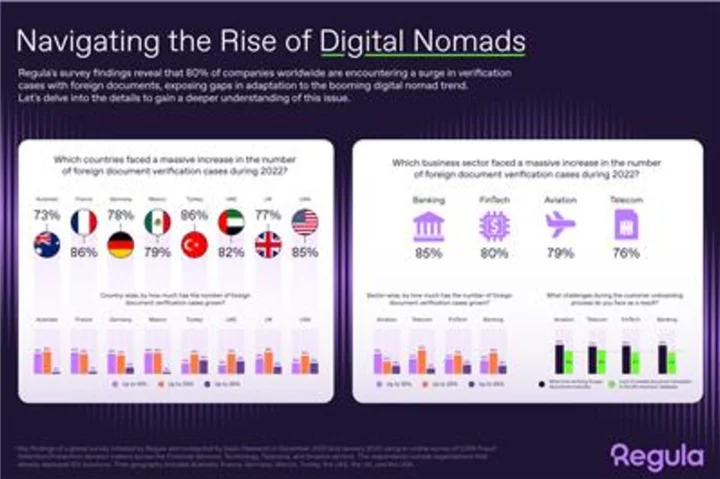Wall Street is taking a no-worries attitude about the ticking time bomb in Washington that threatens to blow up the world economy. That might be a problem.
Debt ceiling-inspired selloffs have been almost nonexistent. The Nasdaq is still up by a staggering 22% on the year. And CNN's Fear and Greed Index of market sentiment is nearing "extreme greed" mode.
Perhaps this indifference is because investors have seen this drama before. They know how it ends: with politicians waiting until the last minute before giving in and finally raising the debt ceiling before disaster strikes.
No one wants to see markets panic, needlessly shrinking the 401(k) plans, nest eggs and college savings plans of millions of Americans. Unfortunately, there is a growing sense that a bit of market mayhem might be necessary.
"A selloff in stock and bond markets may be what's required to get donors and voters to pound on lawmakers' doors to stop the drama and increase the limit," Mark Zandi, chief economist at Moody's Analytics, told CNN on Monday.
On Friday, it looked like the White House and Republicans were getting closer to a deal on the debt ceiling before talks unexpectedly broke down.
But even news of that setback was greeted with a collective shrug on Wall Street. Stocks retreated from their highs but the Dow ended the day with a loss of just 109 points, or 0.3%. That's not exactly going to get people to call their lawmakers.
In some ways, the calm mood in markets is acting like a feedback loop. Investors are betting it'll all get taken care of. Lawmakers are in no rush because the markets are not freaking out. Rinse and repeat.
"Both political parties may need to see incremental market turmoil before settling on an agreement," said Nicholas Colas, co-founder of DataTrek Research.
Market selloff forced a redo on TARP in 2008
History shows that market turbulence can act as a forcing mechanism, compelling lawmakers to make tough and unpopular votes.
For instance, the Dow plunged 778 points — or nearly 7% — on September 29, 2008, after the House of Representatives initially voted down the Troubled Asset Relief Program, known as TARP.
The message was delivered loud and clear. The House came back just days later and approved the controversial bailout program.
In 2011, the most serious near-default in American history, markets experienced volatility in the days and weeks before Washington reached a last-minute deal to raise the debt ceiling. Much more selling occurred afterwards as investors fretted about deep spending cuts and the unprecedented credit ratings downgrade from S&P.
None of this is to say markets are completely ignoring the debt ceiling drama today.
Beneath the surface, there are signs of concern. The cost to insure US debt has skyrocketed from earlier this year. And interest rates on Treasury bonds maturing this summer have surged as investors worry they may not get paid on time.
'Not enough worry'
Still, at a high level, the stock market is not really flinching, at least not yet. And that means no one is lighting a fire under officials in Washington.
"What worries me is there is not enough worry today," said Ed Mills, Washington policy analyst at Raymond James. "I've long held the belief that DC responds when there is a crisis or a deadline. We have not necessarily agreed on a deadline. We understand there could be a crisis but we're not yet at a crisis."
Mill said the problem isn't just reaching a high-level deal between President Joe Biden and House Speaker Kevin McCarthy. It's getting the rank-and-file members from Biden's and McCarthy's respective parties to sign off on whatever deal emerges.
"Final compromise is really hard. And it requires, for it to be truly bipartisan, someone or both sides to give more than they want," said Mills.
That's where a market drop that creates a sense of urgency could be helpful.
Of course, none of this is going to help the popularity of Congress.
The debt ceiling is a manufactured crisis that officials could have dealt with months ago. However, they decided instead to wait until the last minute to solve it — but perhaps not until it shrinks the nest eggs of real people first.









